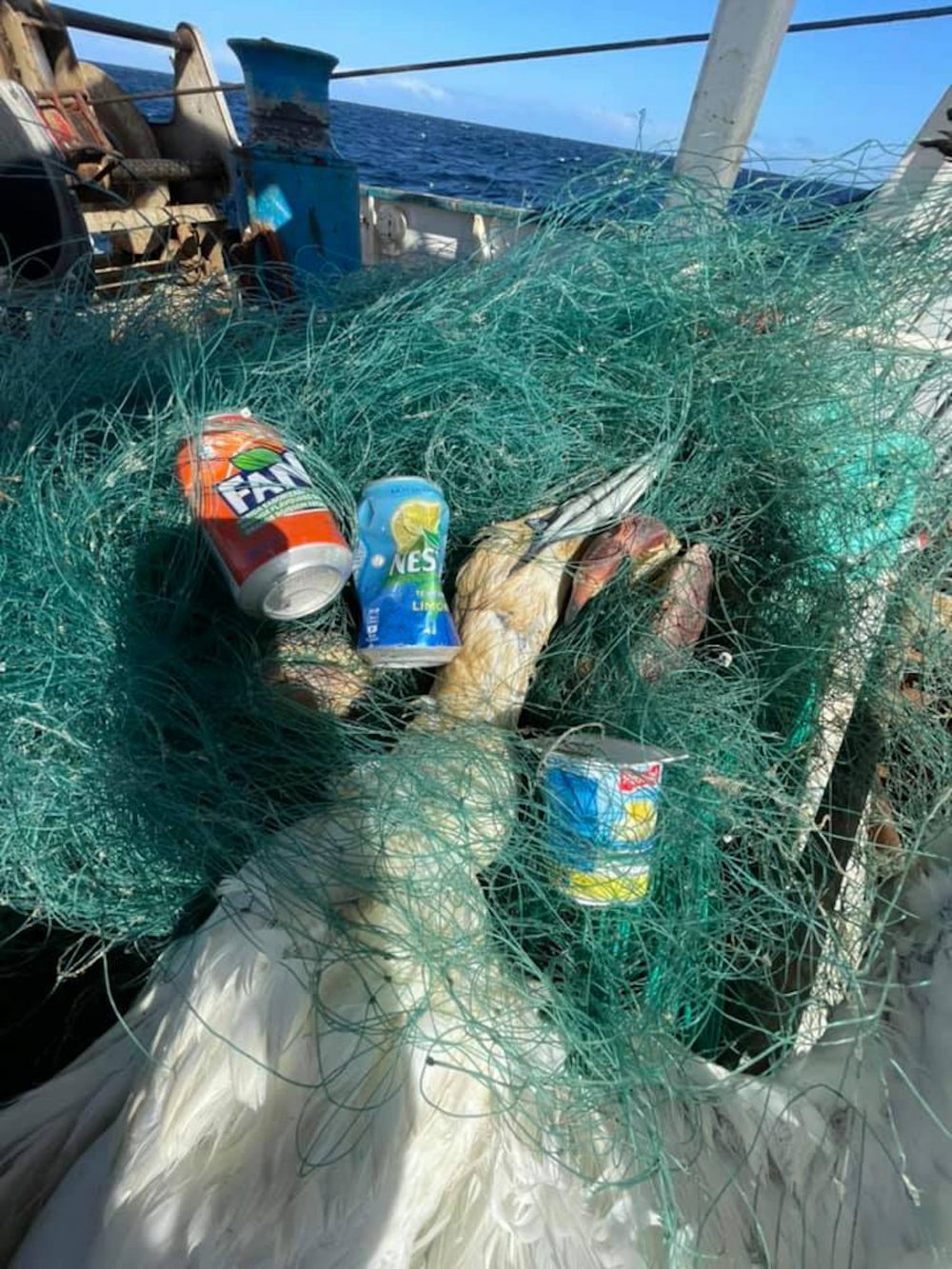DISTRESSING images show a dead gannet that was found trapped amongst old fishing wire and discarded metal cans.
One image shows how the entire neck of the gannet has become completely interwound and trapped in the netting that was found off the coast of Shetland.
Masses of green fishing wire can be seen clumped together and is entirely tangled in itself, making it look near impossible to separate.

Stuck amongst the net is an orange Fanta can, another blue soft drink can, a blue and yellow plastic yoghurt pot and the remains of a large crab.
The sea bird’s white beak has been forced upwards so that it is straight in line with its now stained brown neck.
A closer photo shows the masses of netting which has wrapped around the poor creature’s neck which appears to have caused the bird’s death.
Ross Robertson, who found the dead bird, shared the shocking images to Facebook yesterday writing: “A daily occurrence on our doorstep while the foreign fishing fleet fish as much as they want unregulated while not taking any rubbish ashore at all.
“It’s a good job the Scottish/Shetland fleet clean up and try their best to take rubbish ashore and are in the ‘fishing for litter scheme’.
“The monofilament net has a serious destruction on the wild life, every single day birds are spotted with this stuff hanging from them.”
The distressing images have now collected over 100 likes, with dozens of Facebook users who were shocked by the images.
Charis Butler wrote: “Beyond belief, barbaric!”
Sally Hunt said: “So sad, awful.”
Nat Hall replied: “Sadly, the world takes all seas and oceans as a rubbish tip. Brilliant some are respectful to our home planet! Well done to all bruck pickers! Heroes!
Alan Jones commented: “As long as there are fishing fleets, there will be ghost nets.
“The problem is becoming worse by the year.”
Gillnets are renowned for their lethal impact on seabirds by bycatch, so much so that it is estimated that 400,000 birds are killed by the fishing nets every year.
The Chairman of the Shetland Fishermen’s Association, James Anderson, has this year called for a ban on the use of the deathly nets off of Scotland’s coast to limit the devastation.
Fisherman Ross Robertson discovered the deceased bird whilst out at work.
The 30-year-old, from Burra, Shetland, said seeing birds in this type of fatal predicament is almost a daily occurrence.
Speaking today Ross said: “ Our method of fishing is trawling, so we tow a net around the sea bed to catch our fish.
“We drag up all sorts of rubbish but it’s mostly Spanish long lines, gill nets and general day to day rubbish.
“We (Shetland/Scottish) boats are in a Fishing For Litter scheme, founded in 2004, a simple yet imaginative project to tackle the problem of marine litter.
“Seeing the dead birds really distresses me, but we are all so used to it now.
“We see it every single day, if the birds are not tangled up and already dead they are struggling to fly or feed with this netting or long lines hanging from them and it is utterly impossible to catch and save the birds.
“The problem with the long lines is the hooks are baited then shot out the back (Stern) of the boat, they float for a few seconds long enough for the birds to eat the bait and get hooked.
“It’s a very common sight to see birds flying around with a few metres of the monofilament line hanging from their beaks.
“In an ideal world I would like to see that type of fishing banned from our waters completely.
“Our beaches around Shetland are covered in these nets, lines and general Spanish branded food wrapping litter.
“It’s a sad situation and it’s only going to get worse unless our government gets on our side and does something about it.”